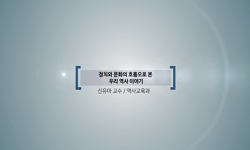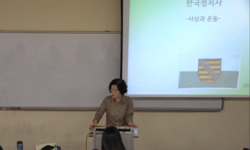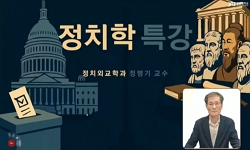This paper explores poetic characteristics of Avant-garde Anthology(1946) published in the Liberation period. We can find out various figures of Avant-garde poets in the Liberation period by this anthology. Most of them were the students soldiers in...
http://chineseinput.net/에서 pinyin(병음)방식으로 중국어를 변환할 수 있습니다.
변환된 중국어를 복사하여 사용하시면 됩니다.
- 中文 을 입력하시려면 zhongwen을 입력하시고 space를누르시면됩니다.
- 北京 을 입력하시려면 beijing을 입력하시고 space를 누르시면 됩니다.

해방기 ‘전위’의 초상-『전위시인집』의 특징을 중심으로- = Portraits of avant-garde in the Liberation period-focused on Avant-garde Anthology-
한글로보기https://www.riss.kr/link?id=A107798880
- 저자
- 발행기관
- 학술지명
- 권호사항
-
발행연도
2017
-
작성언어
-
-
주제어
전위시인집 ; 해방기 ; 학병 ; 청년 ; 전위 ; 감정 수행 ; 애도 ; 분노 ; 정치 ; 수행적 발화 ; 가난한 자 ; 우리 ; 공동체 ; 인민 ; Avant-garde Anthology ; the Liberation period ; student soldier ; young man ; avant-garde ; performative emotion ; sorrow ; anger ; political ; community of poor people
-
KDC
900
-
등재정보
KCI등재
-
자료형태
학술저널
-
수록면
29-63(35쪽)
- 제공처
-
0
상세조회 -
0
다운로드
부가정보
다국어 초록 (Multilingual Abstract)

Their sorrow and anger were performative emotions. Their writing poetry as mourning work of students soldiers had been in process of balanced self-renewal. This performativity, namely expressing deep sorrow helped to unify the people feeling the same way. Their anger about Korean reality in the Liberation period was very political feeling. In general, Anger has been recognized to be a gesture to express a desire to realize justice and a moral will of humans. The expression of Avant-garde poets’ anger was the very active behavoir that showed political and moral existentiallity of the same generation according to their moral or practical reasons. So, it was performative to reciting their own poems revealing this emotional feature. By this performativity, a new community was formed in the recitation site. This community was the community of poor people who fought against a repressive authoritarian regime. ‘We, people’ was a imaginary community that Avant-garde poems had been dreaming during the Liberation period.
This paper explores poetic characteristics of Avant-garde Anthology(1946) published in the Liberation period. We can find out various figures of Avant-garde poets in the Liberation period by this anthology. Most of them were the students soldiers in the 1940’s. After independence, the student soldier was reborn as pure man and warrior for the people and became a symbolic framwork of nation/anti-nation in social and cultural context. The meaning of avant-garde was based on this student soldier’s image and fresh image of the promising young man. The young avant-garde was identified with a aggressive leader for building a new nation. Avant-garde poets, however, came to awaken into the imperialistic desire of the US through the political events such as Students soldiers’ Alliance, namely killed students soldiers by Korean police. Avant-garde poets felt strong sorrow and anger over the miserable deaths of their coworkers.
Their sorrow and anger were performative emotions. Their writing poetry as mourning work of students soldiers had been in process of balanced self-renewal. This performativity, namely expressing deep sorrow helped to unify the people feeling the same way. Their anger about Korean reality in the Liberation period was very political feeling. In general, Anger has been recognized to be a gesture to express a desire to realize justice and a moral will of humans. The expression of Avant-garde poets’ anger was the very active behavoir that showed political and moral existentiallity of the same generation according to their moral or practical reasons. So, it was performative to reciting their own poems revealing this emotional feature. By this performativity, a new community was formed in the recitation site. This community was the community of poor people who fought against a repressive authoritarian regime. ‘We, people’ was a imaginary community that Avant-garde poems had been dreaming during the Liberation period.
동일학술지(권/호) 다른 논문
-
- 인하대학교 한국학연구소
- 임곤택 ( Lim Kon-taek )
- 2017
- KCI등재
-
- 인하대학교 한국학연구소
- 홍성희 ( Hong Sung-hee )
- 2017
- KCI등재
-
기억, 정치이념과 몸의 정체성-해방기 이용악의 시 세계를 중심으로-
- 인하대학교 한국학연구소
- 조영추 ( 赵颖秋 )
- 2017
- KCI등재
-
- 인하대학교 한국학연구소
- 류준필 ( Ryu Jun-pil )
- 2017
- KCI등재




 KCI
KCI KISS
KISS






